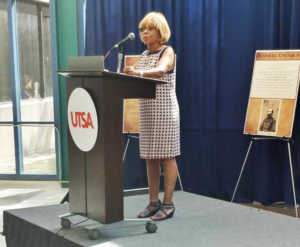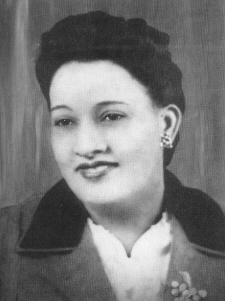Why Thomas Jefferson’s Anti-Slavery Passage Was Removed from the Declaration of Independence
The Founding Fathers were fighting for freedom—just not for everyone.
(History.com) With its soaring rhetoric about all men being “created equal,” the Declaration of Independence gave powerful voice to the values behind the American Revolution. Critics, however, saw a glaring contradiction: Many of the colonists who sought freedom from British tyranny themselves bought and sold human beings. By underpinning America’s nascent economy with the brutal institution of chattel slavery, they deprived roughly one-fifth of the population of their own “inalienable” right to liberty.
What isn’t widely known, however, is that Founding Father Thomas Jefferson, in an early version of the Declaration, drafted a 168-word passage that condemned slavery as one of the many evils foisted upon the colonies by the British crown. The passage was cut from the final wording.
So while Jefferson is credited with infusing the Declaration with Enlightenment-derived ideals of freedom and equality, the nation’s founding document—its moral mission statement—would remain forever silent on the issue of slavery. That omission would create a legacy of exclusion for people of African descent that engendered centuries of struggle over basic human and civil rights. (more)
Fort Bend County community activist, historian Reginald Moore dies at 60
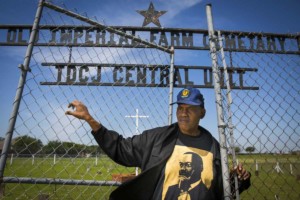
Reginald Moore, at the Old Imperial Farm cemetery that houses some bodies believed to be a part of the convict leasing system in Sugar Land, Texas. (Photo: Mark Mulligan, MBO / AP)
(Houston Chronicle) Reginald Moore, an iconic Fort Bend County community activist and historian who uncovered an unmarked cemetery with the graves of 95 convict leasing prisoners in Sugar Land, died Friday (July 3rd). He was 60.
Moore’s word had an important impact on the Black community in Texas, and his effort must be continued by others, friends said.
“At times, he fought alone but nevertheless, he persevered because he believed in this cause,” said Fort Bend County Judge KP George in a statement. “We will miss a great human being, who tirelessly fought for human dignity and equality all his life.”
Moore grew up in Houston and graduated from Yates High School, where he played left guard on the football team. After high school, he found work as a longshoreman at the Houston Ship Channel. A series of industry layoffs later led him to take a job as a guard for the Texas Department of Corrections at Fort Bend County’s Jester State Prison Farm. (more)
UTSA Professor Prepares Texas Teachers For New African American Studies Curriculum
(Texas Standard) In April, the Texas State Board of Education approved the creation of African American studies courses for Texas high schools. As soon as this fall, the classes will be offered as electives.
Karla Broadus, director of African American studies at the University of Texas at San Antonio, will start conducting online workshops for future African American studies teachers. The workshops — on July 14th and 28th — will prepare teachers for the curriculum. (Note: For workshop information contact: Karla Broadus at 210-
458-6277 or karla.broadus@utsa.edu.)
“I want them to have basic, correct information,” Broadus told Texas Standard host David Brown.
The state mandated and approved the necessary material for the African American studies courses. Broadus plans to break the material down into different areas like government, geography and culture. (more)
Related: UTSA launches first citywide workshop on African American studies
TIPHC Bookshelf
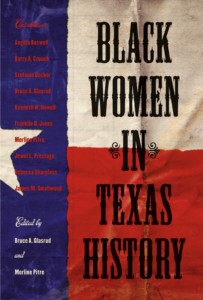 Published scholarship on black history in Texas is growing and we’d like to share with you some suggested readings, both current and past, from some of the preeminent history scholars in Texas and beyond. We invite you to take a look at our bookshelf page – including a featured selection – and check back as the list grows. A different selection will be featured each week. We welcome suggestions and reviews. This week, we offer, “Black Women in Texas History,” edited by Bruce A. Glasrud and Merline Pitre.
Published scholarship on black history in Texas is growing and we’d like to share with you some suggested readings, both current and past, from some of the preeminent history scholars in Texas and beyond. We invite you to take a look at our bookshelf page – including a featured selection – and check back as the list grows. A different selection will be featured each week. We welcome suggestions and reviews. This week, we offer, “Black Women in Texas History,” edited by Bruce A. Glasrud and Merline Pitre.
2009 Liz Carpenter Award for the best scholarly book on the history of women and Texas, presented by the Texas State Historical Association
Though often consigned to the footnotes of history, African American women are a significant part of the rich, multiethnic heritage of Texas and the United States. Until now, though, their story has frequently been fragmented and underappreciated. Black Women in Texas History draws together a multi-author narrative of the experiences and impact of black American women from the time of slavery until the recent past. Each chapter, written by an expert on the era, provides a readable survey and overview of the lives and roles of black Texas women during that period. Each provides careful documentation, which, along with the thorough bibliography compiled by the volume editors, will provide a starting point for others wanting to build on this important topic.
The authors address significant questions about population demographics, employment patterns, family and social dimensions, legal and political rights, and individual accomplishments. They look not only at how African American women have been shaped by the larger culture but also at how these women have, in turn, affected the culture and history of Texas. This work situates African American women within the context of their times and offers a due appreciation and analysis of their lives and accomplishments. Black Women in Texas History is an important addition to history and sociology curriculums as well as black studies and women’s studies programs. It will provide for interested students, scholars, and general readers a comprehensive survey of the crucial role these women played in shaping the history of the Lone Star State.
This Week in Texas Black History
July 6
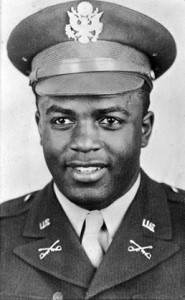
In 1944, at Fort Hood Army Post in Killeen, Lt. Jackie Robinson refused to move to the back of a post bus and was taken into custody by military police, an incident that would lead to his court-martial. Three years before he would break the color line in Major League Baseball, Robinson was charged with insubordination, disturbing the peace, drunkenness (he did not drink), conduct unbecoming an officer, and refusing to obey the lawful orders of a superior officer. Robinson, serving in a support role for the all-black 761st Tank Battalion (the Army’s first such unit), would be acquitted a month later by an all-white panel of nine officers. (See, National Archives: “Jim Crow, Meet Lieutenant Robinson, A 1944 Court-Martial“, and The History Reader, “The Court Martial of Jackie Robinson.”)
July 6
On this day in 1957 Lulu Belle Madison White died of heart failure. Born in 1907 in Elmo, Texas, White was a teacher and civil rights activist. She would settle in Houston, where she met and married businessman Julius White. Lulu Belle enrolled at Prairie View College where she received a degree in English. She taught in Houston’s Independence Heights community but left in the 1930s to work for the NAACP and its struggle to eliminate the state’s white primary. After the Supreme Court handed down its 1944 decision in Smith v. Allwright, which outlawed the white primary, White was at the forefront of educating blacks to vote. When the NAACP looked for a case that would integrate the University of Texas in 1945, White chose the plaintiff, Heman Marion Sweatt, and with the NAACP, successfully pursued the case of Sweatt v. Painter which integrated graduate schools at UT. Sweatt credited White’s leadership for maintaining his own resolve. In 1939, White became president of the Houston NAACP chapter. In 1943, under her fund-raising leadership, the Houston chapter became the largest in the South, and White became its first paid executive secretary. After seven years, she resigned and became the NAACP’s state director and remained in the post until her death, upon which the national NAACP established the Lulu White Freedom Fund in her honor.
July 11
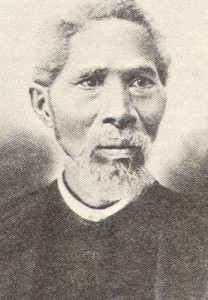
On this day in 1828, Rev. John Henry “Jack” Yates was born into slavery in Gloucester County, Virginia. He moved with his wife (Harriet) and 11 children in 1863 when Harriet’s master relocated with his slaves to Matagorda County. Following emancipation in 1865, Yates moved his family to Houston where he began working with the Home Missionary Society and was ordained a Baptist minister. In 1866, after being ordained, Yates became the first pastor of Antioch Baptist Church, the first black Baptist church in Houston. Yates was also active in education, volunteering Antioch as the site for a Freedmen’s Bureau school and he also helped bring the first Baptist college to Texas, Bishop Academy, an institution that prepared students for employment in trades, business and ministry. Houston’s Jack Yates High School, built in 1926, is named in his honor.
July 11-12
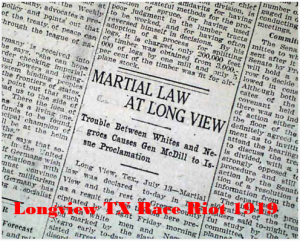
On these days in 1919 the Longview Race Riot occurred, precipitated by an article in the July 10 issue of the Chicago Defender describing the death of a young black man, Lemuel Walters, in Longview. The article, written by Longview teacher Samuel L. Jones, reported that Walters and an unnamed white woman from Kilgore were in love and quoted her as saying they would have married if they had lived in the North. Walters, according to the article, was safely locked in the Gregg County Jail until the sheriff willingly handed him over to a white mob that murdered him on June 17. Jones was held responsible for the article, and on July 10 was accosted and beaten, supposedly by two brothers of the Kilgore woman. News of the article and of the attack on Jones inflamed tempers of both races, and on July 11, a group of twelve to fifteen angry white men drove to Jones’s house where they engaged in a gunfight with residents of the house. Some of the white men went to the fire station and rang the alarm to attract more recruits; others broke into a hardware store to get guns and ammunition. A white mob burned several black homes and a dance hall. Governor William P. Hobby sent Texas Rangers and National Guardsmen to Longview and placed the city and county under martial law. The rangers arrested seventeen white men on charges of attempted murder. Twenty-one black men were arrested, charged, and sent to Austin temporarily for their own safety. Nine white men were also charged with arson. None of the whites or blacks was ever tried.
Blog: Ron Goodwin, Ph.D., author, PVAMU history professor
Ron Goodwin is an assistant professor of history at Prairie View A&M University. Even though he was a military “brat,” he still considers San Antonio home. Like his father and brother, Ron joined the U.S. Air Force and while enlisted received his undergraduate degree from Texas Lutheran University in Seguin, Texas. After his honorable discharge, he completed graduate degrees from Texas Southern University. Goodwin’s book, Blacks in Houston, is a pictorial history of Houston’s black community. His most recent book, Remembering the Days of Sorrow, examines the institution of slavery in Texas from the perspective of the New Deal’s Slave Narratives.
Recent Posts
More Uncomfortable Truths
In February 2020, I was asked to contribute an opinion piece for the PVAMU website. I submitted an essay describing what I called an Uncomfortable Truth of Black History Month. That “truth” focused on the black community’s continual efforts to prove it is worthy of recognition as contributors to American society. Even more so, I argued, it is time the black community finally acknowledges that the subliminal need for acceptance is based on the… (more)
It’s OK now
Hopefully, this COVID-19 pandemic will end soon, and life can get back to normal. At the very least, as a society, I hope we’ll learn how to live with it. But one day, our intelligentsias will analyze every governmental action since February and March of 2020, especially those of the President. Recent policies have addressed the numbers of individuals who are out of work because of the “stay at home” directives. It’s been called… (more)
Submissions wanted
Historians, scholars, students, lend us your…writings. Help us produce the most comprehensive documentation ever undertaken for the African American experience in Texas. We encourage you to contribute items about people, places, events, issues, politics/legislation, sports, entertainment, religion, etc., as general entries or essays. Our documentation is wide-ranging and diverse, and you may research and write about the subject of your interest or, to start, please consult our list of suggested biographical entries and see submission guidelines. However, all topics must be approved by TIPHC editors before beginning your research/writing.
We welcome your questions or comments. Please contact Michael Hurd, Director of TIPHC, at mdhurd@pvamu.edu.

